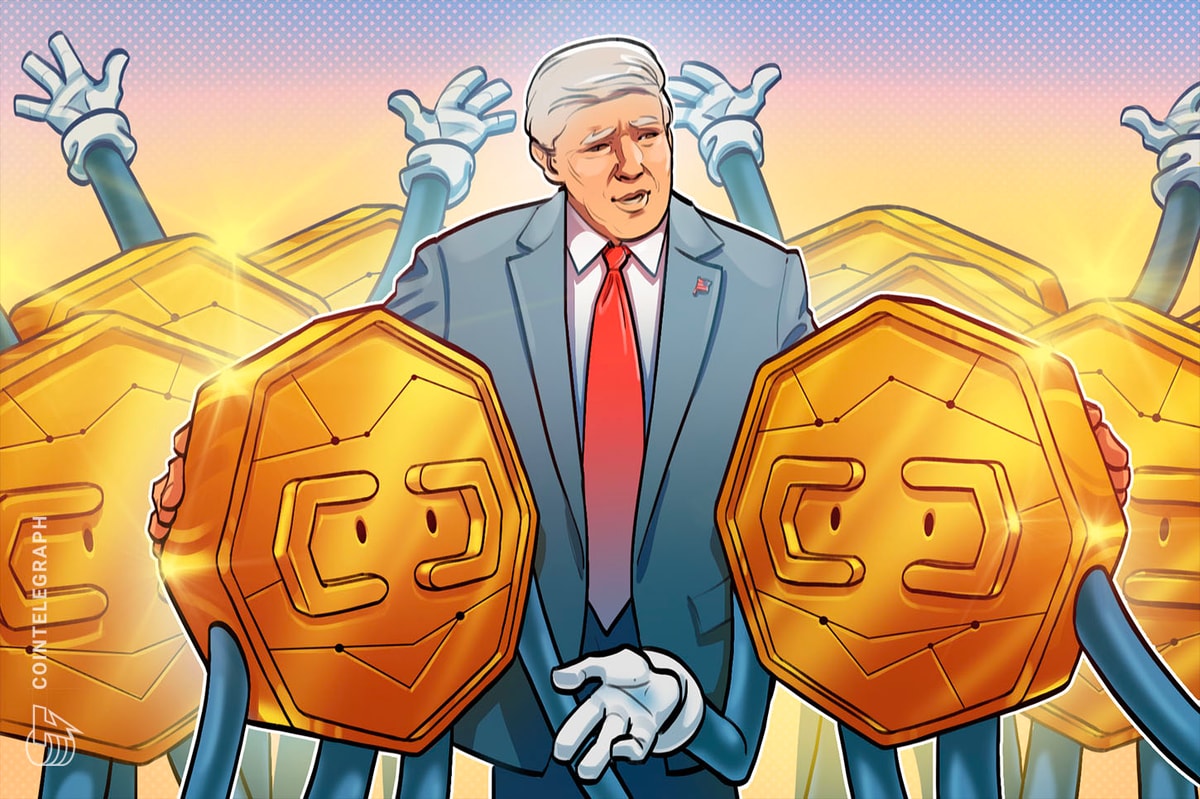Crypto Twitter discussions about law and policy are informed chaos, a specialized cacophony. Despite the drama involved with Gov. Ron DeSantis’ announcement on Twitter that he was running for president in 2024, he made some alpha drops about his stance on crypto.
The key takeaways from Desantis’ remarks were that crypto owners “have every right to do Bitcoin,” and that central planners see Bitcoin as “a threat to them” that they want to regulate “out of existence.” He added that the Biden administration would ultimately seek to outlaw crypto, and he proudly emphasized that Florida last month became the first state to pass a law asserting it would never recognize a central bank digital currency (CBDC).
The announcement presents single-issue crypto voters with a stark choice.
The last year under President Joe Biden has been a cold regulatory winter for crypto developers and owners. Biden started out in the middle of the road on crypto with a balanced executive order. That was always a bit of a rug pull because financial-regulation nominees in his administration have been guided by Sen. Elizabeth Warren’s influence. Then FTX collapsed, and all pretense of balance in the administration’s crypto policy was lost like a forgotten seed phrase.
Related: Elizabeth Warren wants the police at your door in 2024
Biden’s bank regulators spun up what Nic Carter calls “Operation Choke Point 2.0” to exert undue pressure on the flourishing crypto industry through pressure on the banks against doing business with anyone in the crypto industry.
Biden’s Securities and Exchange Commission (SEC) has adopted a policy of regulation by enforcement. In response to calls for clear rules of the road adapted to this new innovation in finance, as the SEC has done many times before with asset-backed securities or master limited partnership energy companies, the SEC leaders obtusely repeat in speeches that the rules are clear and crypto projects should “just come in and register.”
Adding to these complications are echoes from the past administration. Former President Donald Trump's tenure was characterized by explicit anti-Bitcoin rhetoric. He was always enamored of Wall Street, and Wall Street doesn’t love crypto. His Treasury secretary proposed midnight rules on his way out that would have imposed surveillance on personal wallets, violating principles of privacy and autonomy at the core of the cryptocurrency ethos. Don’t forget his SEC chairman overreached with a lawsuit against Ripple as part of an attempt to create precedent that would destroy much of the crypto ecosystem.
Ron DeSantis on #Bitcoin: “I’ll protect the ability to do things like bitcoin. I don’t have an itch to control everything that people may be doing in this space.” pic.twitter.com/j4wRHZACK5
— Jane Adams (@iLoveJaneAdams) May 25, 2023
DeSantis presents a contrasting viewpoint. Known for his pro-market approach, he has publicly expressed his reservations about a CBDC. His criticisms seem to demonstrate an understanding of the fundamental values of cryptocurrencies, which center around personal freedom, sovereignty, privacy and a spirit of innovation.
DeSantis' pro-market track record and his criticisms of a centralized digital currency position him as a leader in campaign discourse around crypto-friendly national policy.
In his campaign announcement, DeSantis mentioned that Washington regulators are skeptical of crypto because they can’t control it but that it’s not a justification to kill it with regulation. And he said if people want to “do Bitcoin,” they should be able to “do Bitcoin.” (Did he just create a meme? I think he did.)
I don’t care that he’s not crypto-native. He gets the ethos. That’s enough. And he remarked on the finer points of administrative agency law — like dismantling “Chevron deference,” a concept that is the SEC staff’s nightmare — so he understands the tools to make it happen.
Crypto Twitter was abuzz over Robert F. Kennedy Jr.’s pro-Bitcoin speech, which garnered considerable attention among Bitcoin (BTC) enthusiasts. It was a good speech. Given the political dynamics within the Democratic National Committee and the realities of incumbent power, Kennedy will not mount a significant challenge to Biden from the left.
Related: Expect the SEC to use its Kraken playbook against staking protocols
DeSantis’ criticism of a CBDC is an indication of his understanding of the fundamental philosophy of cryptocurrencies as tools of economic sovereignty. This viewpoint, deeply rooted in the original ethos of Bitcoin, resonates with many in the crypto community and suggests a policy approach that upholds the autonomy and privacy that decentralized digital assets were created to ensure.
Beyond policy implications, DeSantis’ leadership could cultivate a more supportive environment for cryptocurrencies, potentially stimulating a wave of innovation and entrepreneurship. This environment could foster economic growth and solidify the United States’ position as a leader in technology.
As the discourse around cryptocurrency evolves during the campaign, the need for more than just token political support becomes evident. The industry requires leaders who can appreciate its complexities, identify its potential and are willing to navigate the uncharted territory ahead.
DeSantis, with his unique blend of pro-market pragmatism and insightful understanding of the ethos of cryptocurrency, may be the figure to steer the U.S. toward a more innovative and crypto-friendly future. He will need to bring more direct policy ideas and crypto outreach to win over the crypto community on the campaign trail, but this announcement was a positive start.
In any event, he presents a stark choice to voters who hold their crypto assets dear.
This article is for general information purposes and is not intended to be and should not be taken as legal or investment advice. The views, thoughts and opinions expressed here are the author’s alone and do not necessarily reflect or represent the views and opinions of Cointelegraph.











